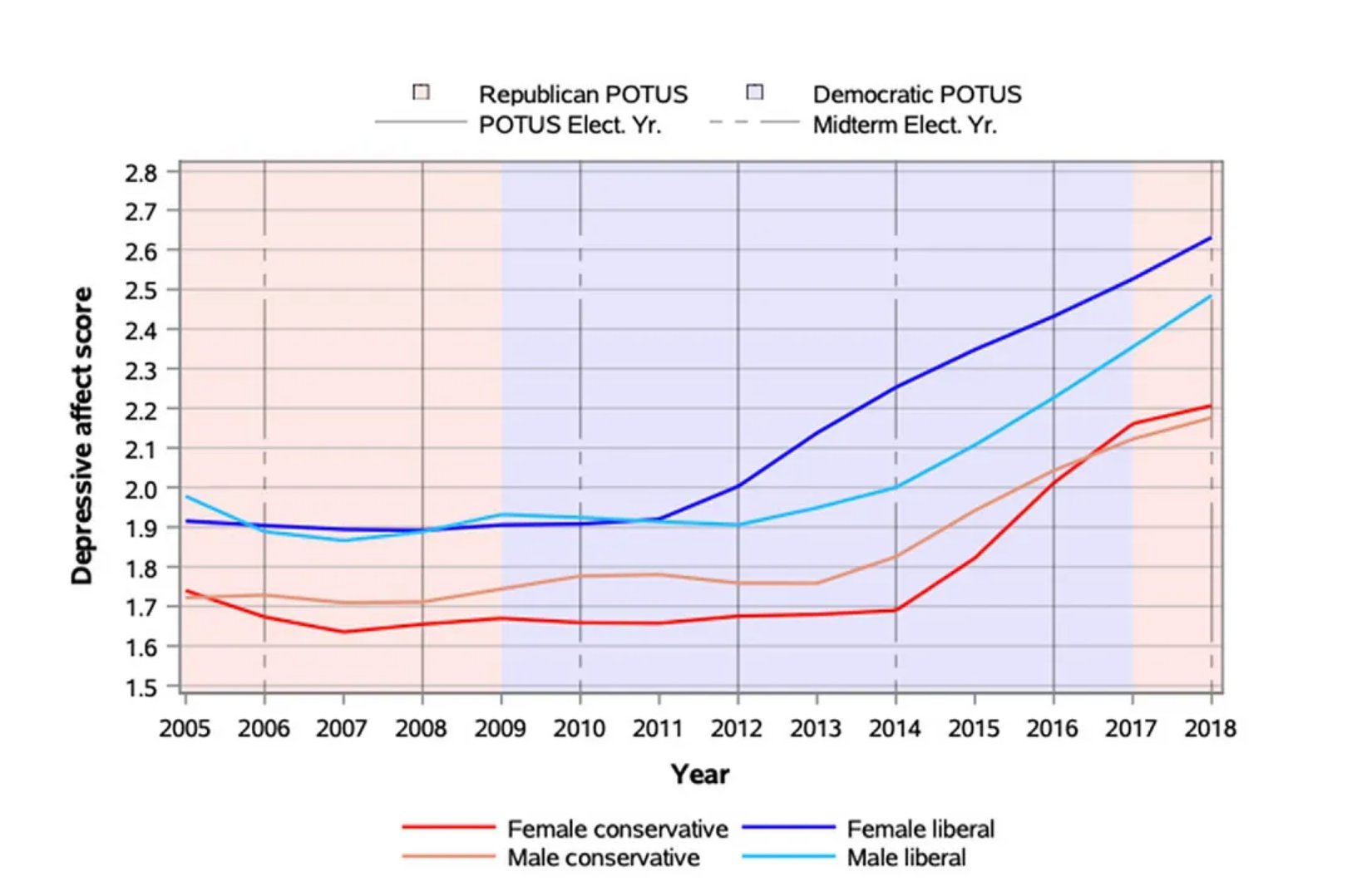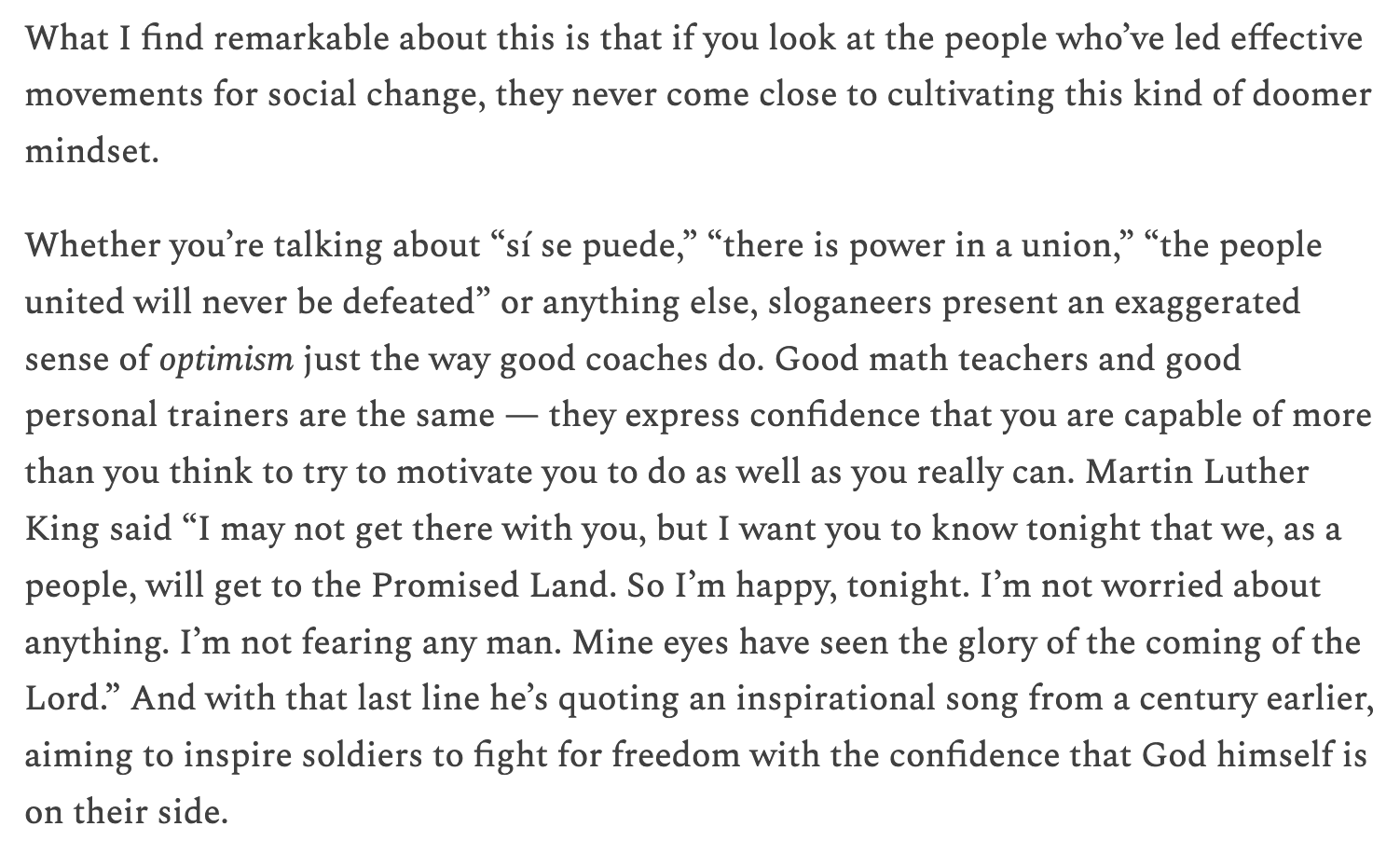Thread
This is a really interesting essay by @mattyglesias on the possibility—highlighted by several studies—that liberal teens are considerably more depressed than moderate or conservatives.
www.slowboring.com/p/why-are-young-liberals-so-depressed
www.slowboring.com/p/why-are-young-liberals-so-depressed
As a liberal, I think it’s important to leave oneself open and vulnerable to the existence of injustices in the world.
But a political movement that, possibly thru its promotion of pessimistic rhetoric, leaves its adherents *unusually despairing & hopeless* has room to improve.
But a political movement that, possibly thru its promotion of pessimistic rhetoric, leaves its adherents *unusually despairing & hopeless* has room to improve.
It would be one thing if America's political history proved that pure exaggerated pessimism consistently won elections.
But, while I’m open to being corrected by historians, my sense (which seems to be shared by @mattyglesias) is that’s the case.
But, while I’m open to being corrected by historians, my sense (which seems to be shared by @mattyglesias) is that’s the case.
One thing I’m trying to do with my writing about abundance and progress is to show how a recognition of material injustice can be tied to a positive (even hopeful; even patriotic) theory of change.
www.theatlantic.com/ideas/archive/2022/01/scarcity-crisis-college-housing-health-care/621221/
www.theatlantic.com/ideas/archive/2022/01/scarcity-crisis-college-housing-health-care/621221/
Another thing I’m trying to do in my writing and podcasting on happiness is to point out the irony that the lessons of cognitive behavioral therapy are routinely flouted by online doomer posters, who risk making a fetish of catastrophizing the world.
open.spotify.com/episode/5yZRgJ28BKWCXqxUQfbsPP
open.spotify.com/episode/5yZRgJ28BKWCXqxUQfbsPP
It's not always easy, but one can reject both
(a) a pollyannish view that the status quo is fine, and any urgency to change things is annoying; and
(b) a catastrophist view that things are hopelessly terrible
There is a country mile to set up home between these poles.
(a) a pollyannish view that the status quo is fine, and any urgency to change things is annoying; and
(b) a catastrophist view that things are hopelessly terrible
There is a country mile to set up home between these poles.
Coda: I'm not convinced that political affiliation is a *leading* cause of rising teen sadness. I go into the more likely causes (including a brief discussion of the effect of online discourse on subjective well-being) here —>
www.theatlantic.com/newsletters/archive/2023/02/the-tragic-mystery-of-teenage-anxiety/673076/
www.theatlantic.com/newsletters/archive/2023/02/the-tragic-mystery-of-teenage-anxiety/673076/
Mentions
See All
Brad Stulberg @bstulberg
·
Mar 1, 2023
This entire thread from @DKThomp is spot on. In between Pollyanna bury your head in the sand and despair is the space for wise hope, which leads to wise action. Grounded hope is hard. It's scary. It makes you realize it might NOT work. But it's ALWAYS better than despair.

